How the study of animal behaviour (ethology) can help you keep livestock more ethically and sustainably
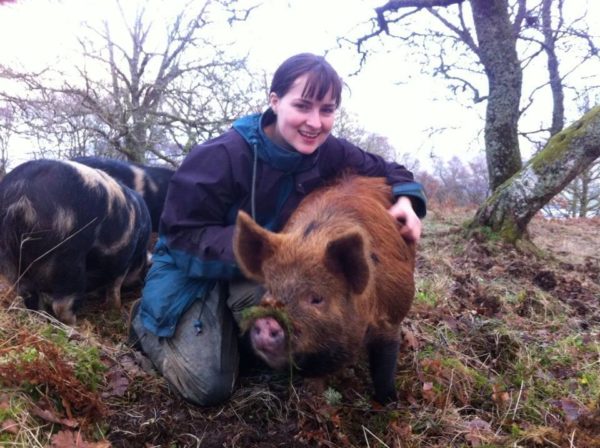
I want to talk about something which can help us design more ethical and sustainable ways of keeping our livestock. It is a subject that has always fascinated me and, if you keep animals, I think you will find it fascinating too. It is the is the study the behaviour of animals, particularly in their natural environment, known as ‘Ethology’.
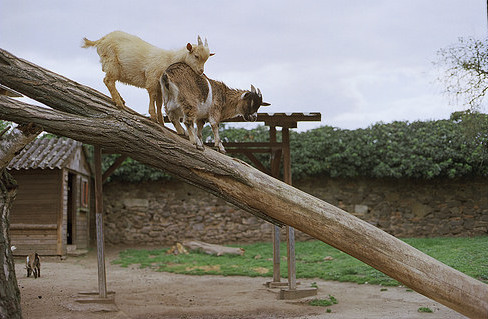
Why does it matter?
The environment an animal has evolved in gives it a set of biological expectations, motivations and needs. If we keep animals in a situation that doesn’t match up with these expectations it can be stressful and detrimental to their health. It is too easy to see things from our own perspective; that stable looks nice and cosy to a cave dweller, that big meal looks healthy to a hunter. To a horse though, which evolved in wide open spaces; traveling 20 miles a day, grazing 18 hours a day; things look very different.
Animals in stressful situations sometimes develop repetitive behaviours known as ‘stereotypies’. They perform some pointless, or even harmful, action over and over again. One way of interpreting this is as a drive to express natural behaviour which has been frustrated. Horses evolved to move, and they evolved to graze, and the sterotypies they develop fall neatly into these two categories: Movement; weaving from side to side or pacing in their stables, and oral; chewing their stable doors and pulling air into their oesophagus.
A horse ‘weaving’, a common stereotypic behaviour.
As well as frustrating the expression of a natural behaviour, failure to consider an animal’s evolutionary history can have unintended side effects. You may have heard that goats will eat anything – hats and old boots included. The popular myth of the greedy and indiscriminate goat obscures the truth that it has evolved, not to graze on grass, but to browse on a variety of fibrous woody material. Intestinal parasites tend not to live on trees and shrubs, so it was unnecessary for goats to evolve resistance to them. If we keep goats entirely on grass we expose them to intestinal parasites to which they have little resistance.

Is this just about being free range and organic?
It is true that if you think natural, organic and free range you are likely to be keeping your animals in a way that allows them to express their natural behaviour already. There is, however, often scope to deepen our knowledge and see things a little more from our animal’s perspective. As a new chicken keeper I knew to provide a dust bath and foraging opportunities, but I learned some other things which I didn’t know such as:
- Chickens are jungle animals; they will be less stressed if provided with cover to hide under. Also, the British climate is not what they are designed for!
- Chickens can recognise up to 80 individual flock mates, above this number they cannot for a stable pecking order and aggression and stress increases.
- A suitably gentlemanly rooster can reduce stress and aggression within the flock as he will guard against predators and break up fights.
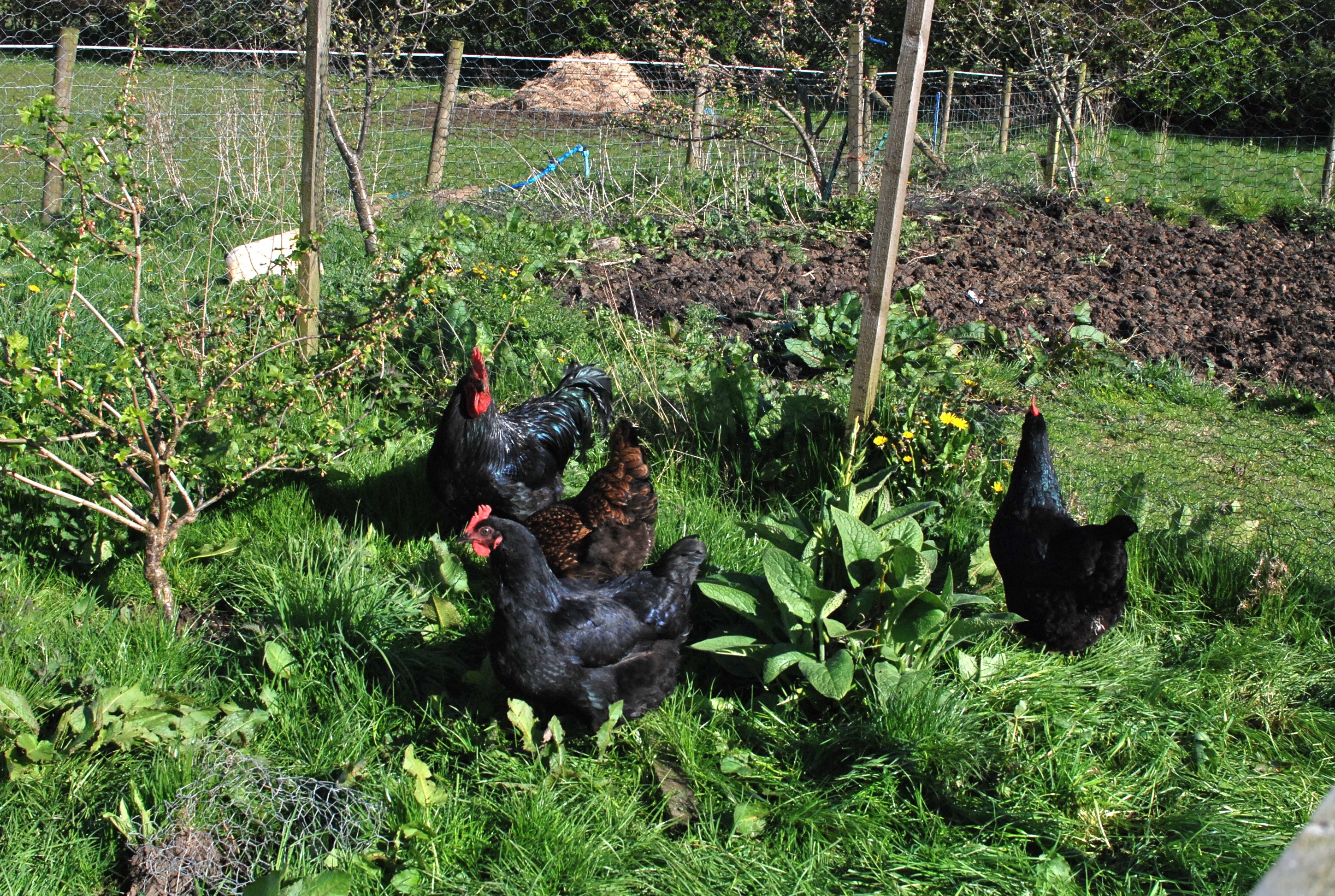
How do I research ethology?
All domestic animals have a wild ancestor, and finding out how that animal lived (or lives), its environment and its behaviour can give you a lot of insight. It is also important to bear in mind that your domestic animal is not the same as its wild ancestor and many things may have changed. So you are also looking for information on the behaviour of the modern domesticated breed, particularly if there are feral colonies.
The easiest source of information is the web. There is loads of information available online written by scientists studying ethology – try this site to start with. You can also gather information by observing animals yourself, in particular noticing how they behave in different environments. Sometimes you may even be able to observe the wild species which was the ancestor, e.g. for most breeds of duck the wild ancestor is the Mallard.
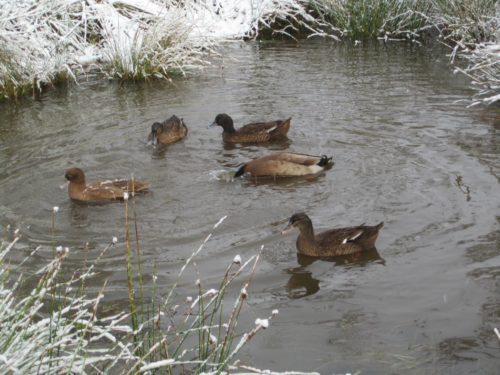
The sort of questions you want answers to are:
- What habitat(s) did my chosen animal evolve in?
- What is its natural diet?
- What are its natural foraging habits?
- What are its natural predators and prey? How did it escape from/catch them?
- Which senses does it most rely on?
- What is the composition of its typical natural social group?
- How does it manage social interactions (is there dominance, submission, bonding, play, how are these expressed?)
- What is its breeding behaviour?
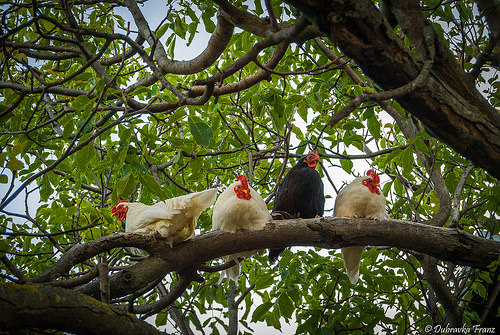
When I am in the first stages of designing a system for keeping an animal I often end up with a table like this (which will be familiar to any student of pemaculture):
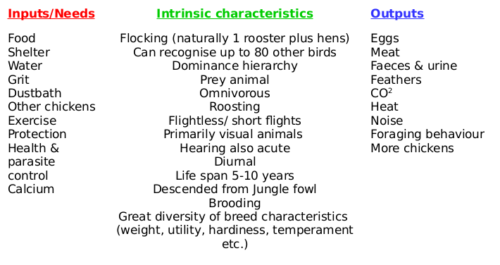
The answers you get may not tell you anything you don’t already know but they may throw up a few surprises or things you hadn’t even considered. In any case the answers will help you put together a list of needs your animals has and behaviours it will be motivated to express.
If you are moving into keeping an animal you can design your management system with these in mind. If you have a problem with your flock or herd you can ask yourself if any of those needs are not being met, and look for ways to tweak things so they are.
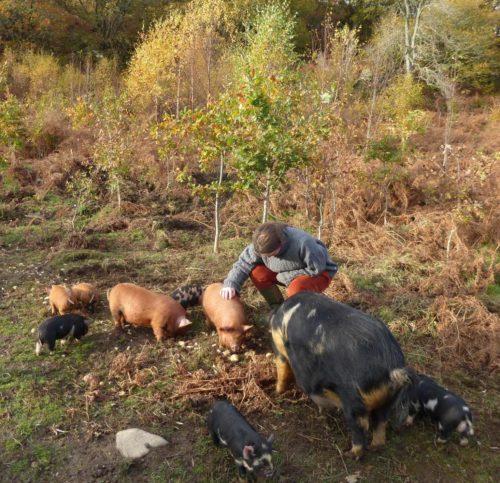
How do I apply it?
Allowing an animal to express its natural behaviour doesn’t mean you need to replicate its natural habitat. You don’t need an expanse of forest to keep goats or chickens, you just need to get creative about finding ways to allow them to express their natural behaviour. For example:
- You rent land and can’t plant browsing areas for your goats so you hang tree branches and other food from the fences.
- You have to keep your pigs in a paddock so you give them toys which allow them to play and express their natural foraging behaviour (see below).
- You keep over 100 chickens and aggression in your flock is increasing so you split them into 2 flocks to allow them to form a stable pecking order.
How to use old cardboard boxes to enable pigs to express their natural foraging behaviour.
If you are stuck, an internet search for ‘environmental enrichment’ should throw up loads of ideas. There are even ‘toys’ you can buy which facilitate the expression of natural behaviour. I would love to see all pigs happily grunting through the leaf litter in acres of woodland, but there are other ways to meet those needs when that is not possible.
Reading about the ethology or intrinsic characteristics of your animals can be fascinating, and coming up with ways to enable your livestock to express their natural behaviour can be fun. Most importantly it can lead us to keep happier, healthier animals by helping us see things from their point of view.
Goats playing with a yoga ball – enjoy!
The views expressed in our blog are those of the author and not necessarily lowimpact.org's
1 Comment
-
1Dave Darby September 12th, 2017
I wonder what alien ethologists might make of humans. My guess is that they’d recommend that we live in close, co-operative groups – so I also guess they’d be amazed that we’re not doing that, even though there’s no superior species domesticating us and forcing us not to.




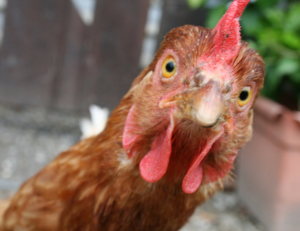 Progress? Is modern food production efficient (using poultry as an example)?
Progress? Is modern food production efficient (using poultry as an example)?
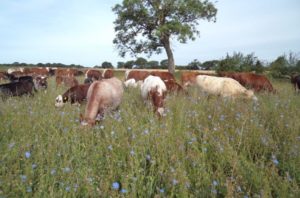 Groundswell: an agricultural show for no-till, organic farming with cover crops and grass-fed animals
Groundswell: an agricultural show for no-till, organic farming with cover crops and grass-fed animals
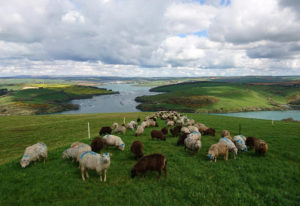 Grazing: why simulating wild herds maximises benefits for farmers, livestock and ecology
Grazing: why simulating wild herds maximises benefits for farmers, livestock and ecology
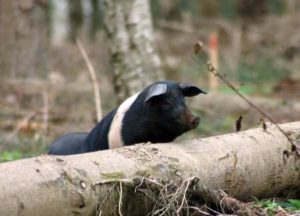 Using pigs for woodland conservation
Using pigs for woodland conservation
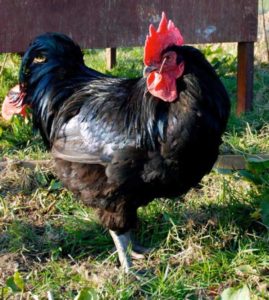 Should you keep a rooster with your hens? (and how to deal with a problem rooster)
Should you keep a rooster with your hens? (and how to deal with a problem rooster)
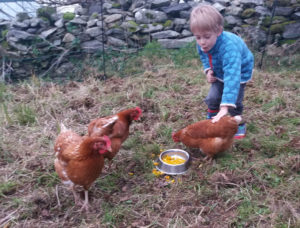 On a small scale, why is it illegal to give food waste to chickens and other animals?
On a small scale, why is it illegal to give food waste to chickens and other animals?
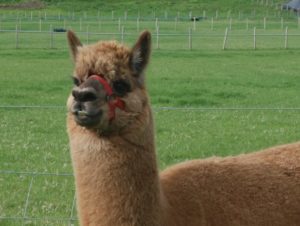 Alpacas
Alpacas
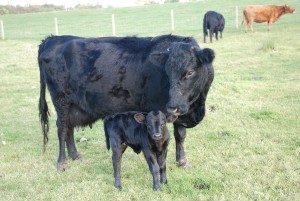 Cattle
Cattle
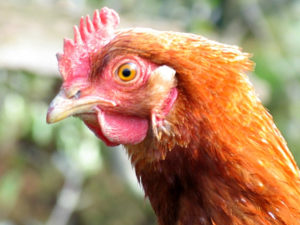 Chickens
Chickens
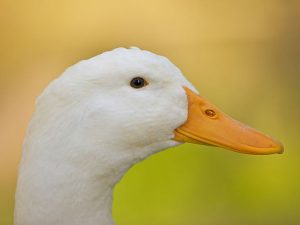 Ducks
Ducks
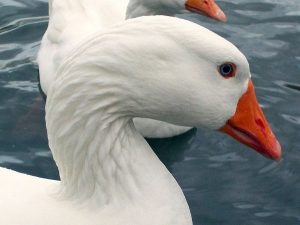 Geese
Geese
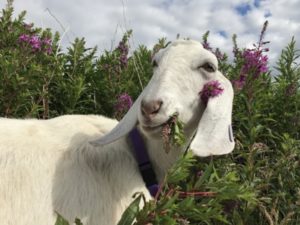 Goats
Goats
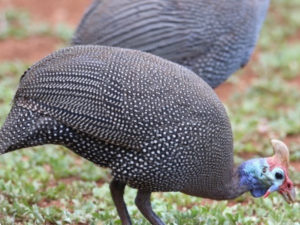 Guinea fowl
Guinea fowl
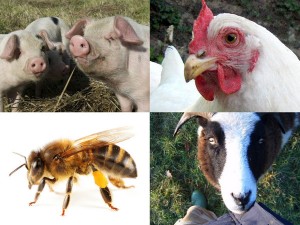 Keeping livestock
Keeping livestock
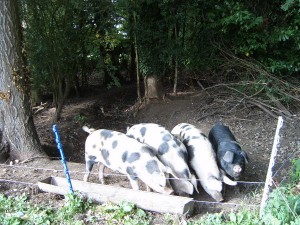 Pigs
Pigs


